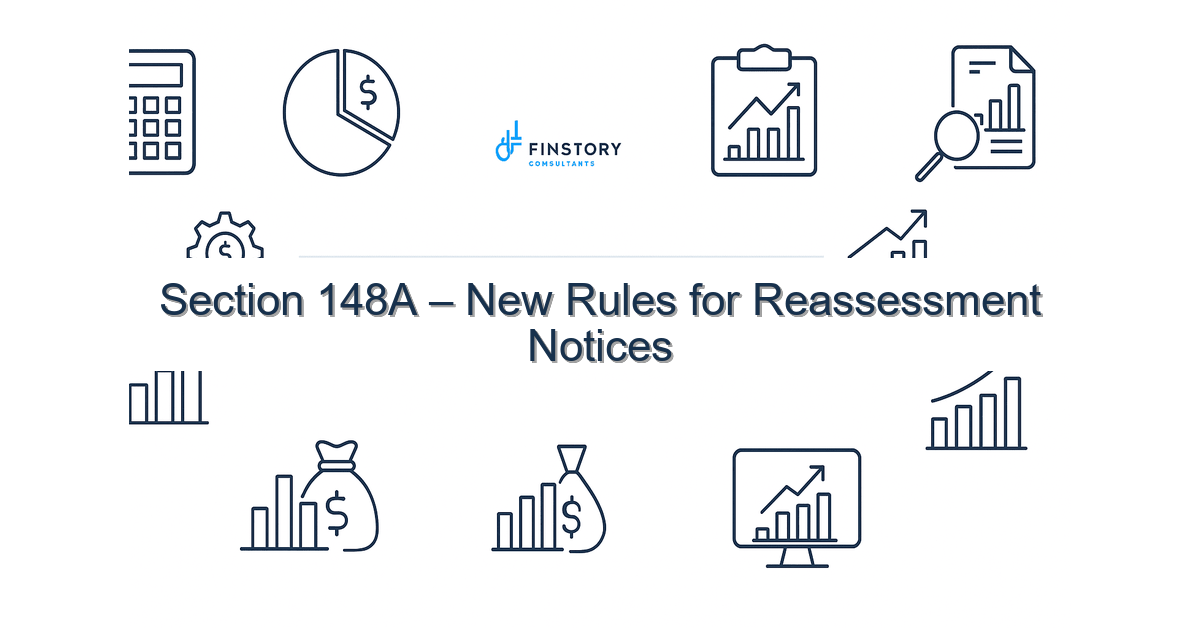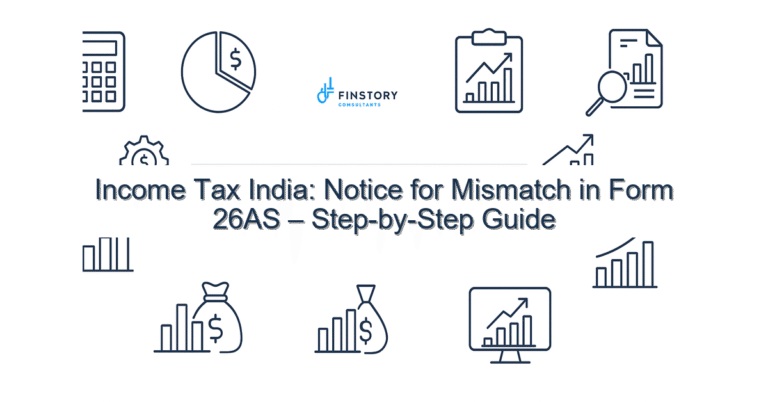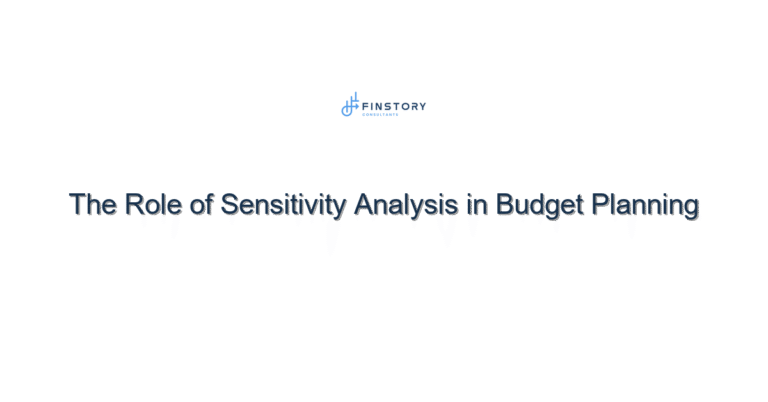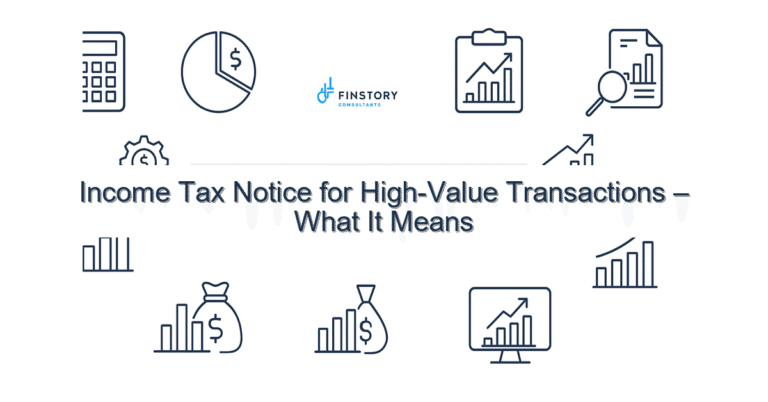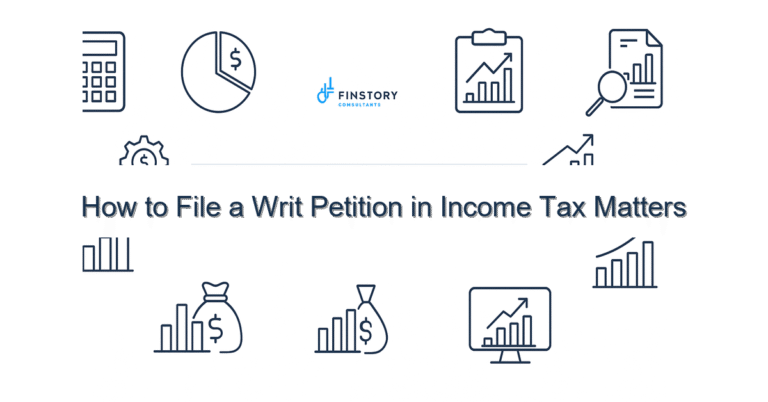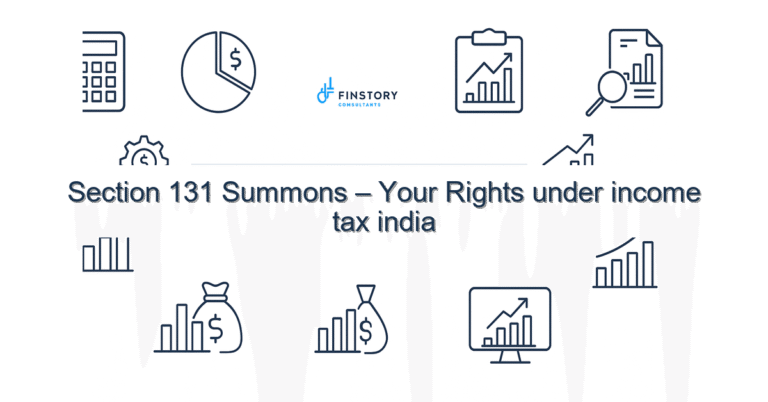Section 148A – New Rules for Reassessment Notices
Getting a reassessment notice under the Income-tax Act can feel like a sudden storm—confusing timelines, legal forms, and the fear of penalties. You’re not alone: salaried individuals, professionals, founders and MSMEs all worry about surprise reopenings and whether they had a fair chance to explain their return.
Summary: Section 148A introduces a formal, pre-notice procedure that requires the tax officer to carry out a preliminary enquiry and give you an opportunity to explain before issuing a reopening notice under Section 148. Know your rights, collect the right records (AIS/26AS, bank and TDS/TCS statements) and respond promptly to avoid prolonged disputes.
What’s the real problem in India?
Reassessment notices historically felt arbitrary to many taxpayers—especially when notice letters arrived years after filing. The government introduced Section 148A to bring transparency and procedural fairness, but the new steps, forms and CBDT timelines introduce fresh compliance tasks. Confusion often arises from terms like AY/PY, the difference between a preliminary enquiry and a formal notice, and when limitation periods under Sections 147/149 kick in.
- Symptom: You receive a letter saying the AO is conducting a “preliminary enquiry” and you’re unsure if this is a formal reopening.
- Symptom: Notices reference AY/PY and old returns; you don’t know whether the ITR filing last date or statute of limitations applies.
- Symptom: Your AIS/26AS or TDS/TCS records show amounts you didn’t expect and you fear that will trigger reassessment.
- Symptom: You’re a founder or MSME owner with transactions flagged (capital gains indexation, international receipts) and worry about extended limitation periods.
What people get wrong
Many taxpayers assume a preliminary enquiry is the same as a reopening notice. Others ignore a 148A(b) query thinking it’s optional to respond. Common errors include:
- Not checking AIS/26AS and bank statements immediately when a query arrives.
- Failing to preserve evidence for capital gains indexation, TDS/TCS credits, or business expenses.
- Responding late or with incomplete documentation—missing the safe opportunity to avoid formal reopening under Section 148.
- Misunderstanding limitation periods: reassessments can generally be opened up to 4 years, 6 years in certain cases and up to 10 years for undisclosed foreign income.
A better approach
Think of Section 148A as a formal chance to stop a notice before it becomes a reopening. The best approach is structured, calm and evidence-based.
- Verify notice type: confirm whether it’s a preliminary enquiry or a Section 148 notice and note the dates — AY/PY references matter.
- Gather records: pull AIS/26AS, bank statements, Form 26AS/TDS/TCS, invoices, broker statements showing capital gains indexation records and supporting contracts.
- Prepare a concise written response: address each query point-by-point with documentary proof and citations to law where relevant.
- Request a personal hearing if you need to explain complex transactions (e.g., share transfers, founder salary splits, cross-border receipts).
- If needed, escalate quickly: engage a tax advisor to draft a professional reply or represent you during the hearing to avoid escalation to Section 148.
Real-world example: A Bengaluru startup founder received a 148A(b) query about deemed income from ESOP conversions. By promptly sharing vesting schedules, exercised option statements, and broker statements showing capital gains indexation, the reassessment was not issued—saving months of litigation and professional fees.
Quick implementation checklist
- Immediately note the notice date and the AY/PY cited — set calendar reminders for response deadlines.
- Download AIS/26AS and Form 26AS for the relevant AY from the e-filing portal and reconcile with your records.
- Collect bank statements, invoices, broker contracts, and proof of TDS/TCS credits for the relevant period.
- List transactions that commonly attract scrutiny: high-value capital gains, international remittances, large cash deposits and unexplained credits.
- Draft a crisp point-by-point response and attach documentary proof (don’t send bulky unindexed folders).
- File the response through the prescribed channel (e-filing portal or as directed in the notice).
- If needed, request a personal hearing and prepare a one-page chronology of facts to present.
- Track any subsequent communication and update your accountant; keep copies of acknowledgments for your records.
- Review related compliance: check if you missed ITR filing last date, paid self-assessment tax, or claimed deductions like Section 80C limit items correctly.
- Engage a tax professional early if the matter involves complex issues like new vs old regime slabs applicability, international income, or disputed TDS/TCS credits.
What success looks like
- Reduced probability of a formal Section 148 notice after timely and well-documented replies.
- Faster closure of preliminary enquiries—most resolved within weeks rather than months.
- Lower additional tax demands and fewer penalties due to clear documentation of TDS/TCS and AIS/26AS reconciliation.
- Higher chance of retaining claimed deductions (Section 80C limit proof, business expenses) without protracted appeals.
- Improved predictability for founders and MSMEs on capital gains indexation treatment and international transaction disclosures.
Risks & how to manage them
Risk 1: Missing response deadlines—mitigate by calendaring dates immediately and sending acknowledgements. Risk 2: Incomplete evidence—keep systematic records and reconcile AIS/26AS quarterly. Risk 3: Wrong representation—use a qualified tax consultant for hearings or complex clarifications. Risk 4: Escalation to reassessment—prepare to litigate with evidence, but use mediation and settlement options where appropriate.
Tools & data
Essential tools:
- AIS/26AS (download from the e-filing portal) to reconcile TDS/TCS credits.
- Income-tax e-filing portal for responses, uploaded documents and tracking notice status.
- TDS/TCS tracking tools and bank statement reconciliation apps to spot mismatches early.
- Record-keeping for capital gains: broker statements, contract notes, and indexation worksheets for long-term gains.
FAQs
Q: What is Section 148A in simple terms?
A: Section 148A creates pre-reopening steps: the tax officer must carry out a preliminary enquiry and give you a chance to explain (typically via a 148A(b) query) before issuing a formal reassessment notice under Section 148.
Q: If I miss the response deadline to a 148A(b) query, will the AO definitely issue a reassessment?
A: Not automatically, but delay increases risk. Always acknowledge receipt and request a short extension if you need documents. Engage a tax advisor right away if you cannot respond fully.
Q: How do limitation periods (4/6/10 years) interact with Section 148A?
A: Section 148A governs procedure; substantive time limits remain under Sections 147 and 149—generally 4 years, 6 years if income escaping exceeds Rs.50,000 and up to 10 years for undisclosed foreign income. Document retention policies should reflect these periods.
Q: Should I involve a tax consultant immediately?
A: If the notice touches large transactions (capital gains indexation, cross-border receipts, or significant TDS/TCS mismatches), it’s wise to consult a professional to draft precise responses and represent you if needed.
Next steps
If you’ve received a 148A query or are worried about potential reassessment, start by collecting AIS/26AS, bank statements and any proofs of tax paid or exemptions claimed. If you’d like help preparing a response or representing you in a hearing, we can assist.
Ready to get clarity? Contact Finstory for a focussed review of your notice and a step-by-step response plan. [link:ITR guide] [link:tax-saving tips]
Work with Finstory. Speak with an Expert for a personalised plan to reduce your tax outgo and stay compliant. Book a free 20-min consultation.
📞 Need help with Income Tax in India?
Book a 20-min consultation with our tax team. Individuals, founders & MSMEs welcome.
Prefer email or phone? Write to info@finstory.net
or call +91 44-45811170.
